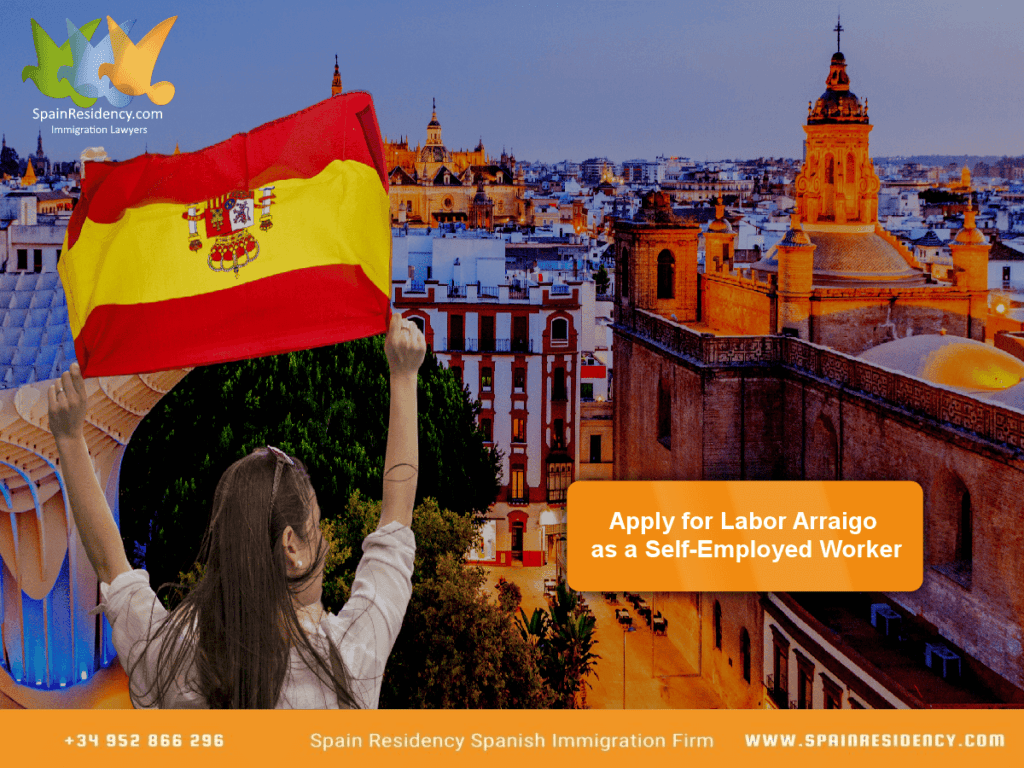In the ever-changing landscape of immigration laws, Spain has new laws for Self-Employed residents in Spain, which have introduced significant reforms that have a direct impact on various residence permits, including the highly sought-after “arraigo laboral.” Traditionally reserved for those who worked without an employment contract, the recent update brings welcome news for self-employed individuals looking to apply for this type of residence. In this blog post, we’ll explore the updated regulations and the requirements for self-employed workers to obtain the labor arraigo in Spain.
The latest update in the Spanish Immigration Law has revolutionized the labor arraigo and has introduced new laws for Self-Employed residents in Spain, which was previously limited to foreigners who worked without proper documentation for a company. Under the new reform, these cases are now governed by a distinct residence category known as “residence for collaboration with the Administrative Authorities.” Consequently, self-employed workers, often referred to as freelancers, can now pursue the labor arraigo under certain conditions.
The reform introduces a significant change by allowing self-employed workers to apply for the labor arraigo if they have been legally working in Spain for at least six months and are currently in an irregular situation. This expansion provides new opportunities for freelancers who wish to secure legal residency status in the country.
To apply for labor arraigo as a self-employed worker, the following key requirements must be met:
- Continuous Residency: The applicant must have resided continuously in Spain for a minimum of two years prior to the arraigo application. The residence can be validated through various means, such as census registration, purchase receipts, or other supporting documents. Notably, during the two-year period, the applicant must not have been absent from Spain for more than 90 days.
- Clean Criminal Record: The applicant should have no criminal record for the past five years to be eligible for the labor arraigo.
- Legally Compliant Professional Activity: The most crucial condition is proving that the applicant has engaged in self-employment for at least six months while maintaining legal residency or stay. The self-employed period should include payments to the Social Security and Tax Authorities, and the applicant must not have violated any legal regulations during this time.
With the recent changes in Spain’s immigration laws, self-employed workers now have the opportunity to apply for the labor arraigo, providing a pathway to legal residency for freelancers. By fulfilling the necessary requirements and understanding the updated regulations, self-employed individuals can seize this chance to establish their roots in Spain. However, it’s essential to seek guidance from expert immigration lawyers to navigate the application process effectively and ensure a successful outcome.
If you’re a self-employed worker aspiring to make Spain your new home, explore the possibilities that the labor arraigo presents and embark on this exciting journey toward legal residency and a promising future in Spain.
We offer legal assistance to obtain Residency or Citizenship in Spain
We are a Spanish Solicitor and assist our clients with all types of residency applications.
Permanent residency is obtained after 5 years of Spanish Residency through Self-Employed Residency, Digital-Nomad, Non-Lucrative Residency or Golden-Visa. This followed by 5 years as a permanent resident in Spain and means you can then obtain Spanish Citizenship with a Spanish Passport.




